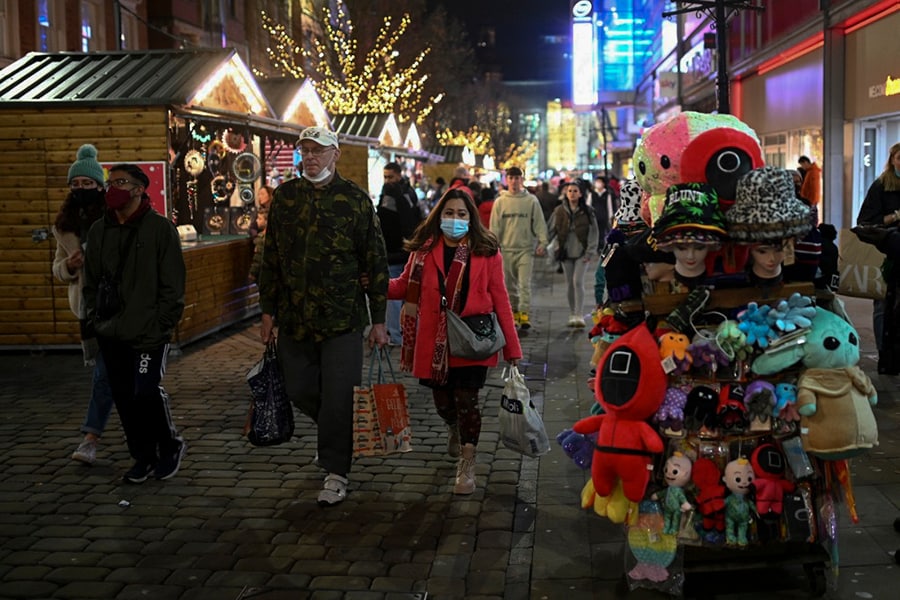
Crack down hard, or wait and see? Europe splits on Omicron response
In all the countries, economic and political concerns are also guiding governments, amid uncertainty about just how big a risk the variant poses
 Shoppers, some wearing face coverings to combat the spread of Covid-19, walk past stores on the Monday before Christmas in Manchester in north-west England on December 20, 2021. - The UK Government on Monday faced pressure to tighten coronavirus restrictions to prevent the spread of the Omicron variant, despite opposition to do so before Christmas.
Shoppers, some wearing face coverings to combat the spread of Covid-19, walk past stores on the Monday before Christmas in Manchester in north-west England on December 20, 2021. - The UK Government on Monday faced pressure to tighten coronavirus restrictions to prevent the spread of the Omicron variant, despite opposition to do so before Christmas.
Image: Oli Scarff / AFP
PARIS — The Dutch can now invite only two guests to their homes as part of a new lockdown. In Denmark, where masks and other social restrictions had all but disappeared thanks to a successful vaccination campaign, cinemas, amusement parks, zoos and other establishments are closed once again.
By contrast, France has ruled out lockdowns, curfews or closures on a continent where new COVID-19 rules are being announced every day in the face of the omicron variant’s rapid spread. “The French exception,” the front page of one newspaper, Le Parisien, said Monday.
For now, France — as well as Spain and, to a lesser extent, Italy — is betting that high vaccine and booster coverage, along with earlier restrictions it put in place, will be enough to keep the coronavirus variant manageable, adopting a wait-and-see attitude as a sense of urgency grips the Netherlands, Denmark and Britain.
The numbers show why.
©2019 New York Times News Service







